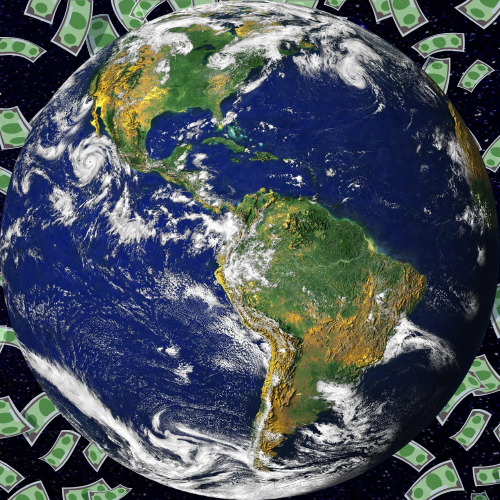Billions & billions spent where?
Meanwhile, the costs for climate action- from prevention and mitigation to transformation of systems and recovery from damages- just rise and rise.

I've been thinking about the gap between some of the biggest stories involving billions of dollars these days. Tech leaders like Mark Zuckerberg and Elon Musk have been eager to live the libertarian dream of paying little toward taxes, & this amplifies the vast amounts of money available to them for things like buying Twitter ($44 billion) or experimenting with the Metaverse ($10 billion). The recent blow-up of the FTX cryptocurrency exchange has investigators trying to track down more than $32 billion in investor funds that was thoroughly mis-managed and now 'gone missing'.
Meanwhile, the costs for climate action- from prevention and mitigation to transformation of systems and recovery from damages- just rise and rise. A couple US-based project estimates I've seen: $31 billion to protect the harbor around Galveston, Texas, and $52 billion for potential storm-surge gates around New York City. Then there are the estimates for costs now and projected forward for nations that have not contributed large-scale carbon pollution. Pakistan has had at least 40 billion in losses since massive flooding affected a third of that country recently. These numbers alone don't convey the endless political tug-of-war, whether within this country or globally, to get these projects funded by more than words.
The consequences of not taking taxation on the tech creators seriously is that it’s normalized the way they now have resources to spend billions & billions on their not-ready-for-primetime ideas. This would still be noticeable if this was a different time like say, the 'greed is good' 1980’s, but now it is happening when conditions exacerbated by climate change are a threat to life itself in some places & situations. As Anand Giridharadas wrote in a New York Times piece recently : “...If enough of us decided to, we could enact labor, tax, antitrust and regulatory policies to make it hard for anyone to amass that much wealth while so many beg for scraps.” Also, I would add: while so many governments, including the wealthier ones, can barely wrap their minds & budgets around the coming climate costs.
I often get pulled in by some of the comments that people leave alongside articles like this. The 4th of the Reader Picks from someone in East Lansing, MI, who listed their name as Waabananang, caught my eye with this line (the italics are added by me): "For tradition-minded tribal citizens and leadership, we understand this time as already post-apocalyptic, and the tasks at hand are to continually do what we can to reclaim and follow our teachings."